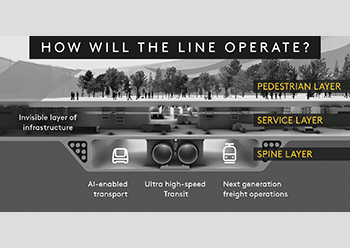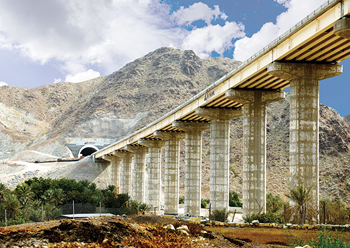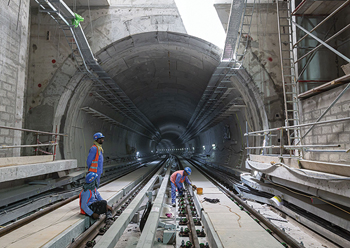
 Metro Network in the GCC: Planned and operational
Metro Network in the GCC: Planned and operational
The GCC cities currently have a total of around 400 km of metro track but an estimated additional 1,100 km of network needs to be installed to cope with the transportation requirements of these rapidly developing cities. This will require sizeable investments – which could generate up to fourfold returns – and a clearly defined implementation framework, says a report released by global strategy consultancy firm Strategy&, which is part of PwC network.
The report, entitled "Effective Metro System Investment: getting on track", provides valuable insights and guidance on how to implement metro systems in the Mena region.
To date, within the GCC, Dubai and Doha have 90 km and 76 km of operational metro system track, respectively, while Riyadh is planning to launch a 176-km metro system by 2024. Abu Dhabi has outlined plans for a 131-km metro system by 2030, Kuwait also intends to build a metro system, while Bahrain is set to implement its metro system project soon, the report stated.
The case for metro systems in the cities of the Middle East is intensifying due to population growth, tourism surge and the congested road network. The region is home to some of the world’s fastest-growing cities, and investing in metro systems is critical to meet the increasing demand for efficient mobility, the report states.
 |
|
Investments in metros in the GCC: Planned and operational |
Based on current supply and expansion plans to meet population demand, Strategy& estimates the GCC cities together require an additional 1,100 km of metro system, which would involve $220 billion of additional investment by 2030. While the cost is significant, a properly implemented and funded metro system can generate three to four times in direct and indirect socioeconomic benefits, which could be worth around $700 billion from 2031 to 2050, while reducing congestion, increasing road safety and improving air quality, according to the report.
To implement a metro system in a cost-efficient and effective manner, the region must adopt a framework that consists of four pillars:
1. Clear objectives at the outset, to prevent conflicts among different goals during the implementation phase;
2. Integrated planning, which is crucial to ensure a seamless and convenient experience for riders. This involves addressing the challenges of first-mile and last-mile connectivity, ensuring flexibility and providing maximum connectivity with other modes of transportation like buses, taxis, ride-hailing, micro-mobility, autonomous shuttles, and pods;
3. High-quality service and customer-centric experience, including making the interaction between the digital and physical aspects of the service seamless;
4. Commercial mindset. A metro system should aim to realise its full commercial potential through arrangements that capture long-term revenue generation opportunities beyond ticketing.
These four pillars of the implementation framework in turn rest on four elements, namely effective governance; policies and incentives to support transit adoption, that is to nudge people away from private car use; funding throughout system development, launch, and early operations, to prevent gaps in investment and significant delays, and ensure that operational funding is accessible to provide the quality and availability that attracts riders; and local capabilities such as design, planning and maintenance that enable effective long-term management
Although the implementation framework applies to all cities, individual cities will focus their attention and investments based on where they stand in terms of their metro system.
“Cities in the Middle East have the opportunity to transform their public transport systems.Irrespective of where they are on that journey now, they require an implementation framework to ensure that their large-scale investment meets future demographic and economic demands.
“Properly implemented and managed, metro systems can create long-term socio-economic returns, promote sustainability, and improve the quality of life for residents,” the report concludes.








.jpg)




.jpg)




























.jpg)




































